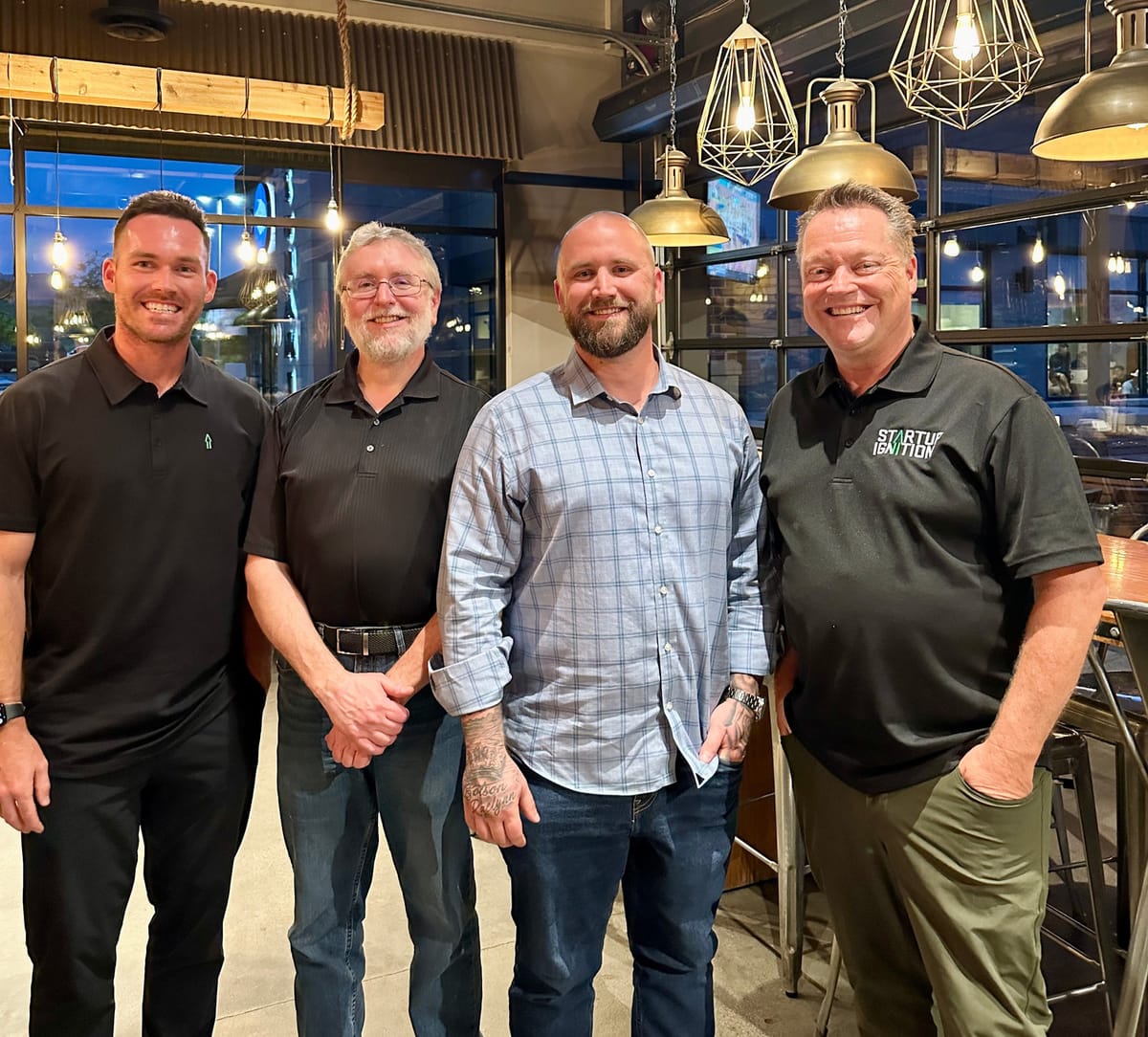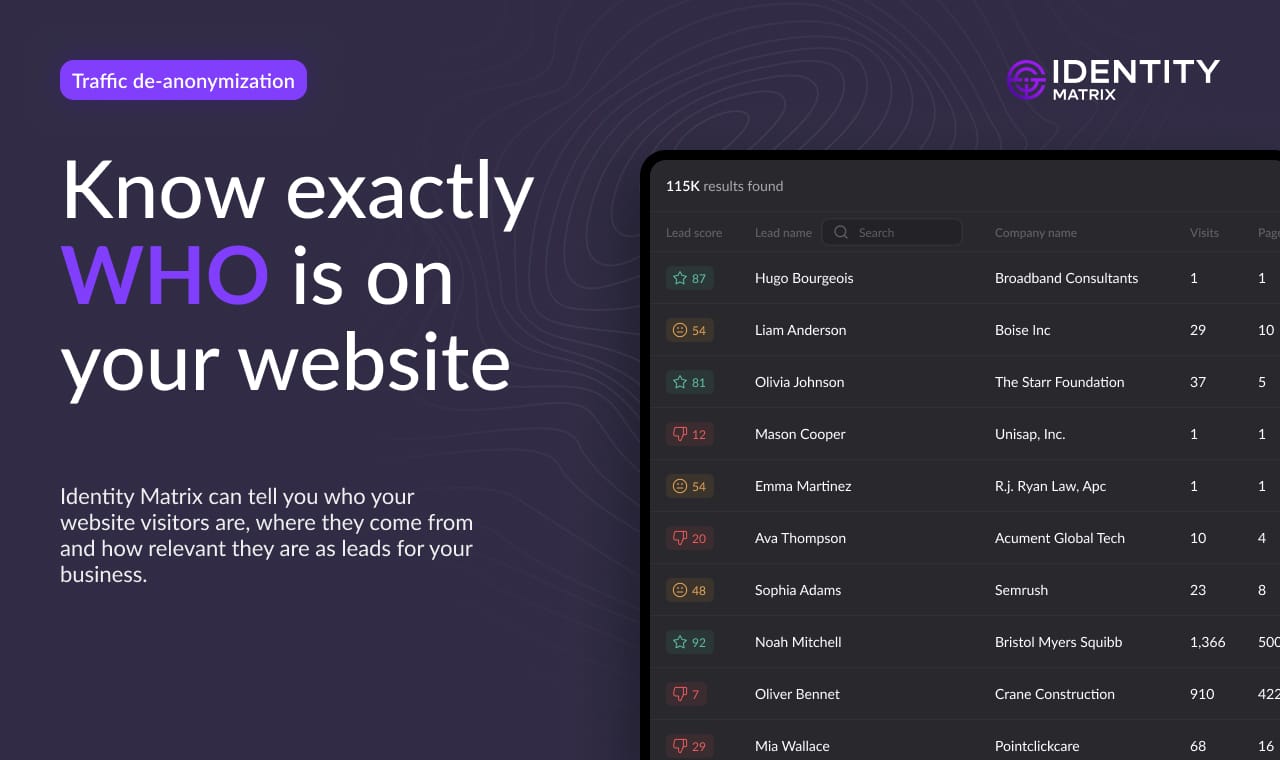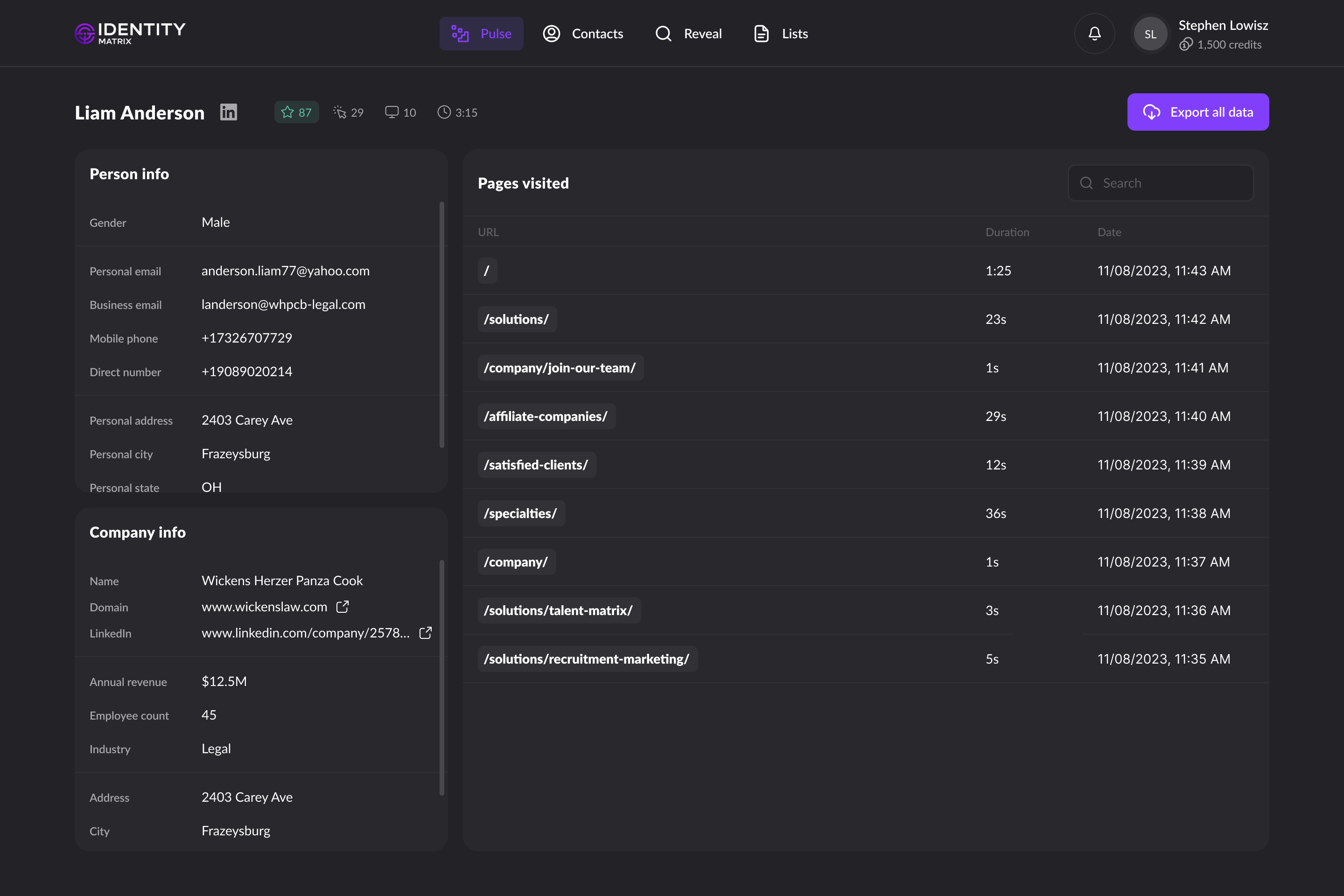

Startup Ignition Ventures (SIV) recently made a $300,000 investment in Identity Matrix Inc, a Novi, Michigan-based marketing platform that specializes in de-anonymizing web traffic. SIV (Provo, UT) led the $400,000 round. Another investor, P3 Ventures (Michigan) invested $100,000.
Identity Matrix participated in the Startup Ignition Bootcamp in June of this year, having met John and Tyler Richards in February. After seeing the technology, SIV became interested and introduced it to several Utah-based companies. Almost all of them wanted to start using it.
Identity Matrix is already generating revenue, has ten customers, and is doing about $100K in Annual Recurring Revenue (ARR).

CEO and Co-Founder, Stephen Lowisz, founded the company 18 months ago. He was joined by tech Co-founder, Jerome “Mike” Howell, in June of this year. They are the only full-time employees at the company at the moment. The pre-seed investment will fund mostly product development, under Howell’s supervision. Lowisz told TechBuzz that the company expects to reach profitability within 90 days or so, after which the pre-seed investment will go towards ramping up go-to-market activities. Currently, the company has two full time developer contractors in Europe and Latin America, and two marketing contractors in Michigan.
“Stephen is an extraordinary hustler with great tenacity,” said John Richards, Founder and Managing Partner of SIV. “Those are the hallmarks we look for in a Founder/CEO. We were doubly impressed by the reaction of target customers during our due diligence process. We are typically skeptical in our due diligence, but Identity Matrix’s value proposition seems to be very high with its clients.”
Identity Matrix has developed a B2B SaaS product that can de-anonymize or provide person-level identification of visitors of websites. In other words, the tool can be used to identify the exact individual visiting a website. It can be applied to 50% to 70% of US web traffic. The company provides licensed users with the contact information of site visitors, including every page they visited, page intent, visits, etc. This information, as well as ICP filtering, is turned into a score for the site visitor.
Identity Matrix is a B2B product intended for marketing and sales leaders of companies that have substantial web traffic. “If the website has no traffic, our tool is pretty much useless,” said Lowisz.

Mike Howell pointed out that one of the core company capabilities is that it can combine disparate data sources to come up with the best enriched lead possible. “That's part of our secret sauce, combining all these sources together to get the best contact information for a given person.”

And yet, Lowisz and Howell say the tool is compatible with strict privacy laws such as those in California and Europe, the CCPA and GDPR. Lowisz explained how their technology can pass such stringent privacy laws. “Basically everyone in their lifetime has opted in to partner marketing at some point in time,” he explained. “Even if they opted in five years ago, we are able to connect device IDs, hashed emails, first party cookies, etc, to the person who opted in, the person that owns the original email. Then, with our proprietary enrichment, we're able to layer all the other contact data on. It's legal because every single person has opted in.”
While other tools exist that can de-anonymize 20% of website traffic, Identity Matrix claims a rate of up to 70%. Contact data provided for each visitor is verified in real-time. This practice boosts accuracy rates of mobile phones to 75%+, according to the company.

In September, the company will release a visual analytics component that will allow licensed users to see the exact page path a website visitor takes, similar to Google Analytics, but focused on the role of the visitor, such as a marketing leader from a particular company. “It will show where the CMO from Company ABC went, which pages she viewed, where did she go next, and so on. It's going to be a very visual analytics platform and built within the tool within the next few weeks,” said Lowisz.

